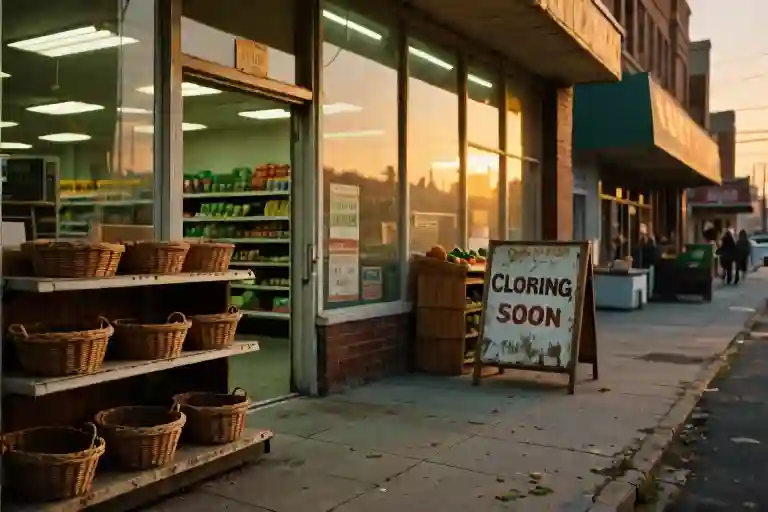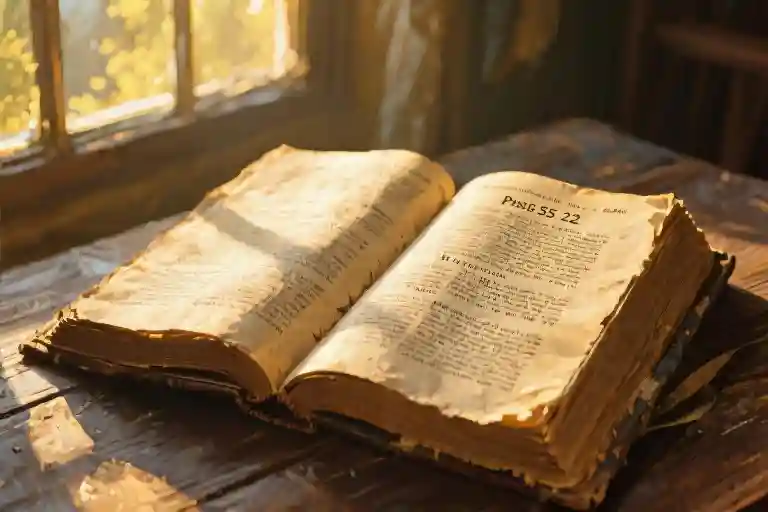I did something last night that I haven’t done in over five years. I went to a Bible study. Not in a stained-glass sanctuary with pews that creak under the weight of centuries, but in a backyard dotted with mismatched lawn chairs, the kind where charcoal smoke tangles with laughter and someone’s always flipping burgers a little too late.
This was the kind of gathering I used to imagine when people talked about spiritual community – where the sacred slips into the spaces between paper plates and spilled soda, where questions matter more than answers. Casual. Honest. Human. Yet all afternoon, my ribcage had been humming with that particular unease that comes when you’re about to step into a room where you’re not quite sure who you’ll be. A guest? A mentor? A heretic? Just some guy who remembers when flip phones were cool?
The invitation came from Mark, who hosts these weekly gatherings for young adults from his church. He’s the sort of person who makes faith look like something that fits comfortably in everyday life – the kind who’ll pray over the potato salad without making it weird. When he asked, I said yes immediately, the way you do when you want to be the kind of person who says yes to things. Then spent the next seventy-two hours composing increasingly elaborate excuses in my head.
By 6pm, the anxiety had settled into my sternum like a second heartbeat. I checked my watch three times while sitting in the driveway, rehearsing exit strategies. The math of arrival time played on loop – late enough to avoid awkward early-bird small talk, early enough not to draw attention. Fifteen minutes past the stated start time felt safe, giving the illusion of someone casually running behind rather than someone who’d circled the block twice.
What surprised me wasn’t the fear itself, but its texture. Not the sharp panic of public speaking or the dread of confrontation, but the low-grade buzz of being between identities. Five years changes a person. The last time I’d sat in a Bible study, I could still bluff my way through theological debates. Now the verses felt like postcards from a country I’d once visited, the memories vivid but the context fading.
The car door clicked shut behind me with finality. Through the fence came the crackle of a fire pit and the scent of something with too much barbecue sauce. Someone was explaining the difference between brisket and burnt ends with evangelical fervor. I counted six pairs of Chacos in the entryway – the unofficial footwear of earnest twenty-somethings – and felt my shoulders relax exactly three degrees.
No one asked why I was there. No one demanded my spiritual resume. A paper plate appeared in my hands bearing a hamburger that defied structural integrity, and suddenly I was part of the circle, the firelight making theologians of us all. The conversation meandered from Paul’s letters to parking tickets, from grace to grad school applications. At one point, a woman in overalls argued passionately that the Book of Jonah is really about workplace anxiety, and everyone nodded like this was perfectly obvious.
Here’s what they didn’t see: the way my fingers still tapped rhythms on my knee when the talk turned to predestination. How I mentally translated certain phrases into language that made sense to me now. The quiet relief when the group laughed at a joke about biblical plagues, proving we weren’t taking ourselves too seriously. Not one of them knew how many times I’d almost stayed home, how foreign my own skin had felt walking up the driveway.
The fire burned down to coals while we debated whether love is a verb or a noun. Someone passed around s’mores supplies with the solemnity of communion elements. As I toasted my marshmallow to golden perfection (a spiritual gift if ever there was one), it occurred to me that belonging might sometimes look like this – not the absence of unease, but the willingness to let it sit beside you in a lawn chair, unwrapped but unremarked upon, while the conversation flows around it like water.
The Anatomy of Unease
The humming started around 3pm – that quiet, persistent vibration just beneath my sternum. Not quite a panic, more like a low-grade electrical current running through my ribcage. I caught myself checking the clock every twelve minutes, as if tracking the progress of some invisible countdown. By 5:37pm, I’d developed an elaborate fantasy about texting my friend with a plausible excuse. Food poisoning seemed appropriately urgent yet vague.
What fascinated me most was how my brain kept constructing possible identities for this evening. Four distinct versions of myself flickered in my mental projection:
- The Guest: Polite observer, nodding at appropriate intervals, laughing slightly too loud at jokes. Safe but unsatisfying.
- The Mentor: Some elder statesman of faith, expected to dispense wisdom. The pressure of that role made my palms damp.
- The Heretic: The one who’d ask uncomfortable questions about biblical contradictions, disrupting their peaceful gathering.
- The Old Guy: That sad silhouette at the edge of young adulthood’s campfire, his very presence a memento mori for the others.
My fingers developed a mind of their own, tapping out arrhythmic patterns on the steering wheel during the drive over. The anxiety had physical dimensions – a slight constriction in my throat, shoulders creeping toward my ears, that peculiar dryness behind the eyes that comes from overthinking. I counted three separate moments where I nearly turned the car around, each time inventing new rationalizations:
It’s not too late to claim a migraine.
They won’t miss one more person.
Maybe next week would be better.
What surprised me was how ordinary this terror felt. Not the dramatic, heart-pounding fear of true danger, but the mundane dread of potentially awkward interactions. The kind where you rehearse introductions in your head, then forget your own name when the moment arrives. Where the simple act of choosing a seat feels like a personality test.
Yet beneath it all pulsed a quieter, more curious sensation – the faintest pull toward something I couldn’t quite name. Not hope exactly, but the possibility that the humming in my chest might find its matching frequency in that backyard, around that fire, among those strangers who didn’t yet know how badly I wanted to belong.
The Arithmetic of Arrival
The clock read 6:37pm when my thumb first hovered over the cancel button. A textbook case of RSVP remorse – that peculiar modern affliction where commitment feels like concrete shoes the moment an event transitions from hypothetical to imminent. The second wave hit at 7:12pm, just as I finished tying my shoes. There’s something about the physical act of preparation that makes retreat seem impossible yet irresistible.
Social mathematicians understand this calculus well. Arrival timing isn’t about punctuality; it’s about creating the perfect buffer between isolation and immersion. Too early and you’re stranded alone with your awkwardness. Too late and you become That Person who disrupts the flow. The sweet spot? Approximately 12 minutes after the official start time – enough delay to ensure critical mass, enough margin to avoid conspicuous lateness.
My dashboard clock glowed 7:28pm as I executed the final approach. Three right turns, one left, each rotation of the steering wheel tightening the knot in my stomach. The GPS estimated arrival at 7:41pm – a textbook application of the 12-Minute Rule. Through the windshield, I counted seven silhouettes around the fire pit. Not enough to disappear in the crowd, not few enough to feel spotlighted. Goldilocks would approve.
What they don’t tell you about social anxiety is how exhausting the pre-game becomes. The mental dress rehearsals, the contingency planning (if X happens, I’ll say Y), the constant cost-benefit analysis of every potential interaction. By the time I parked, I’d already expended more emotional calories than the actual two-hour gathering would require.
The car door opened to a symphony of charcoal smoke and laughter. Someone was telling a story about a failed camping trip, the group’s collective chuckle rising like sparks from the fire. My fingers brushed against the housewarming six-pack I’d brought – the universal token of ‘I want to belong but don’t know how to say it.’ The condensation on the bottle matched the dampness of my palms.
Then the unexpected equation solved itself. A guy in a flannel shirt – maybe late twenties, maybe early thirties – glanced up and raised his beer in greeting. Not the performative welcome of a designated greeter, just the casual acknowledgment humans give other humans. The arithmetic of arrival reduced to its simplest form: one person seeing another person, and choosing to say ‘you’re allowed to be here.’
Funny how all those carefully calculated minutes couldn’t account for that.
Firelight Theology
The backyard smelled of charcoal and something sweet – maybe barbecue sauce caramelizing on chicken thighs, maybe the last of summer’s honeysuckle clinging to the fence. I counted five distinct sounds as I settled into a folding chair: the crackle of burning oak, a cicada’s drone from the neighbor’s yard, three overlapping conversations about work visas and podcast recommendations, the ice clinking in my lemonade glass, and beneath it all, the quiet rustle of Bible pages turning in the breeze. This wasn’t the church experience I’d grown up with. No stained glass, no hushed tones, no carefully curated silence. Just eight people under a string of patio lights, their shadows stretching toward the vegetable garden whenever someone leaned forward to flip a burger.
What surprised me most wasn’t the casualness of it all, but how the ordinary became sacred through sheer repetition. The host – my friend from the gym who always shares his protein bars – moved between grill and circle with the ease of someone who’d done this every Wednesday for years. When he handed me a paper plate stacked with cornbread, the gesture felt liturgical. No interrogation about my beliefs, no test to prove I belonged. Just cornbread, still warm from the cast iron, its edges crisp with that perfect balance between burnt and golden. I understood then how food could be its own kind of welcome, a communion more honest than any doctrinal quiz.
Around the fire pit, theology happened in fragments between bites. A graphic designer debated whether Jesus would use social media. A nurse compared the Good Samaritan parable to triage protocols. The flames cast just enough light to see faces but not enough to read the small print in our Bibles, which somehow made the discussion freer. Mistakes felt permitted here, half-formed thoughts allowed to linger in the air like woodsmoke. At one point, someone misquoted a verse about faith and mountains, and instead of correction, we got five minutes of surprisingly profound talk about actual mountains people had moved – student debt, addiction, coming out to conservative parents.
Physical space shaped the conversation in ways no sanctuary ever could. The uneven ground made chairs tilt toward each other. The fire’s heat forced occasional retreats that shuffled the circle’s dynamics. When mosquitoes drove us to relocate the dessert tray, the sudden cluster around the lemon bars birthed an impromptu discussion about manna and modern abundance. I found myself noticing how belief here wasn’t something you professed with raised hands, but something that emerged in the way people automatically made room when latecomers arrived, how they remembered whose plate was vegetarian without being told twice.
By the time marshmallows appeared, I’d stopped counting how long it had been since my last Bible study. The sticky sweetness on my fingers, the ache in my shoulders from laughing at a terrible joke about Jonah and jet lag, the way the group seamlessly incorporated my single comment about workplace ethics without making it A Moment – these became my liturgy for the evening. Not doctrine, not even exactly community, but the quiet miracle of being an unremarkable participant in something larger. As the fire burned down to embers, I realized no one had asked why I’d come. The gift of that unasked question warmed me more than the flames ever could.
Stranger in the Light
The fire had burned down to glowing embers when I noticed it – no one was performing spiritual triage on me. No interrogations about my church attendance history, no subtle theological litmus tests. Just a paper plate being passed my way with extra cornbread, as if my presence required no justification beyond the empty space on the folding chair.
Younger faces flickered in the firelight, some nodding intently as the discussion turned to Jacob wrestling with the angel. A girl in overalls scribbled notes in the margin of her Bible. Someone else stirred the coals absentmindedly with a stick, sending up sparks that dissolved into the California night. The ordinary sacredness of it all caught me off guard – how easily they made room for an unclassified participant like me.
Modern faith communities often talk about inclusion, but this was different. Not the programmed hospitality of greeters at church doors, but something quieter and more profound – the gift of being unremarkable. My age difference, my complicated history with organized religion, the five-year gap in my spiritual resume – none of it became a talking point. The warmth here operated on simpler terms: if you’re drawn to the fire, you belong by the fire.
I watched a college student wipe barbecue sauce off his Romans commentary. A guy with sleeve tattoos nodded when I made a comment about doubt being the shadow side of faith. The conversation flowed around me like water, finding its level without pressure. No one needed me to be any particular version of a believer – not a prodigal son, not a cautionary tale, just another body sharing heat from the same source.
Later, walking to my car with the smell of woodsmoke clinging to my jacket, I recognized the genius of their approach. This group had mastered the art of passive belonging – creating space where participation required no credentials beyond showing up. The fire didn’t care if I was certain. The young theologian who handed me a s’more didn’t need to hear my testimony first. Their version of community asked only one question: do you want to sit here?
Maybe that’s what I’d been craving all those years without realizing it – not a belief system with airtight answers, but a circle where the flames outshine everyone’s shadows. Where the only expectation is that you’ll take the plate when it comes your way, and pass it along when you’re done.
Stranger in the Light
The smoke clung to my sweater as I walked to the car later that night – not the heavy, suffocating kind from cigarettes, but the light, woody scent that lingers after an evening by the fire. My shoulders felt different too, not quite relaxed but no longer holding that invisible weight I’d carried through the afternoon.
Nobody had asked for my credentials at the door. No theological pop quiz, no subtle interrogation about how often I attended services. Just paper plates balanced on knees, laughter interrupting serious discussions about ancient texts, and the occasional marshmallow sacrificed to the flames. The young adults – because they were decidedly young, most barely into their careers – had debated free will with barbecue sauce on their chins. Someone’s dog had slept through the entire study, snoring against my feet.
I’d expected to feel like a museum exhibit: ‘The Last Remaining Heretic of Generation X.’ Instead, the firelight seemed to erase hierarchies. In that flickering orange glow, my doubts didn’t mark me as an outsider. If anything, the quiet ones – whether from shyness or skepticism – were given more space than the eager commentators.
Driving home, I realized the most surprising gift of the evening: permission to be incomplete. No resolution demanded about my faith, no pressure to return next week, no application form for belonging. Just the embers of a shared experience that could mean everything or nothing at all.
We talk so much about finding our tribe. But what if the real grace lies in those temporary shelters where we’re allowed to be strangers – to others, and sometimes, most uncomfortably, to ourselves? The places where smoke gets in your eyes, but somehow lets you see more clearly.





